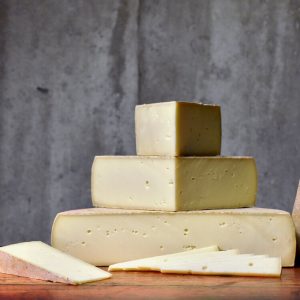Global Specialty Foods Market Expected to Reach $224.88B by 2026
The global specialty foods market is expected to grow from $158.87 billion in 2021 to $170.21 billion in 2022 at a compound annual growth rate of 7.1 percent. The market is expected to grow to $224.88 billion in 2026 at a compound annual growth rate of 7.2 percent, according to Research and Markets.
The market consists of sales of specialty foods and their related services. Specialty foods are made from high quality ingredients and have limited distribution with unique or beautiful packaging. They consist of cheese & plant-based cheese, non-RTD cocoa and coffee, refrigerated and frozen poultry/seafood/meat, yogurt, candy, pretzels/snacks/chips, bread & baked goods, and others.
The main product type are cheese and plant-based cheese, frozen or refrigerated meat, poultry, and seafood, chips, pretzels and snacks, bread and baked goods, chocolate and other confectionery and others. Cheese is nutritious food made mostly from the milk of cows and also from other mammals, including sheep, goats, buffalo, reindeer, camels and yaks. Plant-based cheeses are made from a variety of nuts, most commonly cashews, almonds and macadamias. The various type of distribution channels are food service, retail and online.
Asia Pacific was the largest region in the market in 2021. Western Europe was the second-largest region in the market. The regions covered in the specialty food market are Asia-Pacific, Western Europe, Eastern Europe, North America, South America, Middle East and Africa.
The growth in the number of millennials preferring at-home and healthy meals coupled with growing interest in having nutritious food for a healthy lifestyle is increasing the demand for specialty foods. According to Specialty Foods Association, millennials are twice likely to plan at-home meals and giving high preferences for specialty products to create interesting and healthy eating experiences.
Moreover, according to the research from the NDP Group in 2019, millennials, gen X, and baby boomers are expected to eat more meals at home. Thus, growth in at-home cooking activities of millennials and preferences for healthy foods is anticipated to boost the revenue for specialty foods market over the forthcoming years.
The high cost of specialty food is likely to hinder the growth of the specialty foods market during the period. Specialty foods are made from high-quality ingredients such as gluten-free, non-GMO, and ingredients rich in vitamins and minerals, thus include a higher cost of raw materials. According to specialty foods association, the high cost of ingredients, certifications, and production is increasing the prices of specialty foods making it unaffordable for the large group of the populace. Therefore, the high cost of specialty foods is predicted to hinder the growth of the specialty foods market during the forecast period.
The launch of high quality and innovative products such as plant-based, convenience, better-for-you, non-GMO products with authenticity, and products with unique attributes such as low fat, low calorie, low sodium, high protein, no dairy and organic is a major trend shaping the growth of the specialty foods industry.
In April 2021, Brazilian based JBS SA, a meat processing company, announced that it will acquire Vivera, a European plant-based food company, for €341 million ($410 million). The deal includes three manufacturing facilities and a research and development center located in the Netherlands.
This acquisition is an important step to strengthen JBS SA global plant-based protein platform, for the same Vivera will give JBS a stronghold in the plant-based sector, with technological knowledge and capacity for innovation. Vivera produces a range of plant-based meat replacement products and these products are distributed to retailers in more than 25 countries across Europe.
For news of interest to the specialty food industry, subscribe to Gourmet News.







